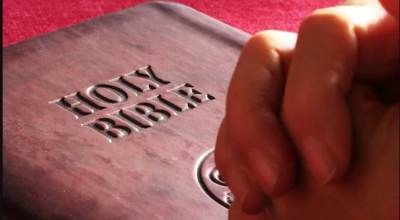Two ways to go with special sales tax levies
Published 9:57 pm Monday, October 15, 2018
For Mississippi’s first 155 years, the power to tax was jealously guarded by the Legislature. It still is, but there was a lapse.
Counties could collect property taxes, subject to state limits. Cities could collect those, too, and for about 90 years cities have shared in general sales tax revenue collected within their municipal limits.
That was it, though. Localities were otherwise forbidden to tread on the Legislature’s taxation turf.
It was 46 years ago when the lapse began. There was a national trend and a lot of talk about something called “home rule.” Local governments were becoming free of state control and could impose special taxes for parks, for capital improvements such as convention centers — and they didn’t have to ask anybody for permission except local voters. The theory was locals knew best.
In Mississippi, the Legislature fought the trend. No way were counties and towns across Mississippi going to receive any measure of autonomy. But then there was a compromise, of sorts. Certain cities — Natchez, Vicksburg, Tupelo and towns on the Gulf Coast — were, in sequence, granted legislative permission to add “tourism taxes.” These were, after all, painless to locals because they fit the maxim, “Tax man, tax man don’t tax me; tax the man behind that tree.”
The special local sales taxes authorized by the Legislature starting in 1972 were 1, 2 or 3 percent added to the state general sales tax and collected only at hotels and/or restaurants and/or bars. Travelers know many states have these taxes. Some are hefty.
In turn, the money collected was to be used as leverage to enhance localities. Tourism development people were hired to plan and coordinate events and improvements. Flowers were planted, brochures printed, signage and attractions added.
After the initial trickle of authorizations, there came a flood. Today, 82 different local taxes are being collected. Some have been renewed and renewed again long after the intended purpose (a park or industrial site) was funded; some had no repealers. Six more were approved by the Legislature this year but are not yet being collected.
Here’s where a decision looms. Reading between the lines of a new PEER report, it appears the Legislature has become covetous of the nearly $100 million collected and paid to cities and towns via these taxes just in the last budget year.
The report by the Joint Legislative Committee on Performance and Expenditure Review doesn’t say that, at least not explicitly. But it must be remembered that the very professional crew that staffs PEER only studies what the Legislature says to study. And on top of that it must be observed that since Republican supermajorities took control in both chambers of the Legislature, the trend has been to amass and centralize power. This state is not governed by conversation and concensus; it’s governed by “my way or the highway.”
The report makes several points:
• There are few, if any, official metrics by which to measure if a special local sales tax has produced the intended results.
• There is little state oversight of whether the money was spent as intended.
• There is no or very little coordination or consolidation of efforts locality to locality.
The $1.5 billion Toyota plant at Blue Springs is evidence of what can happen when area communities (three towns and three counties) decide to pool resources to attract development. The nation’s top-rated car collector event, “Cruisin’ The Coast,” also shows what happens when neighboring towns are neighborly.
So wouldn’t it make sense for state development and tourism staffs to at least have a coordinating role, some semblance of authority when it comes to how locally collected special taxes are spent? Or is it better to let cities and counties decide what’s in their interest without requiring any consultation?
That’s the question the PEER report seems to pose.
There is no mistaking that the Legislature is both money hungry and power hungry. If given control over these special funds, there’s no guarantee lawmakers wouldn’t forget why the money was collected and redirect it. Their history is clear on that point.
PEER indicates it’s less than perfect to have 82 – soon to be 88 – special local sales taxes and each city, county or commission spending the revenue independently. But would state lawmakers do better?
After all these years, it still comes down to the same consideration in play for a long, long time. Do we trust locals to make the best decisions for themselves? In the past and perhaps in the future, the answer from the Capitol has been, “No.”
•
Charlie Mitchell is a Mississippi journalist. Write to him at cmitchell43@yahoo.com.





